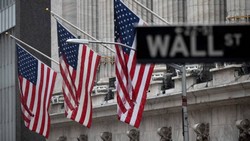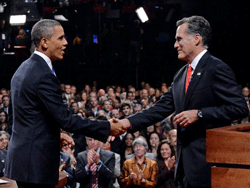During the 2016 presidential election both Democratic candidates, former Secretary of State Hillary Rodham Clinton and Senator Bernie Sanders (I-Vt.), supported a financial transaction tax on Wall Street speculation. Four years later, most every Democratic presidential candidate supports such a measure in 2020.
Sanders introduced a bill (S. 1371) that would direct the proceeds to funding tuition-free public colleges and universities. Senator Elizabeth Warren, former Vice President Joe Biden, Mayor of South Bend, Indiana Pete Buttigieg, and former Mayor of New York City Mike Bloomberg all support some variation of a financial transaction tax, in an effort to resolve wealth inequality and fund additional programs such as Medicare expansion.
According to Jeffrey Christakos, Chair of the Department of Accounting and Specialist Professor, The Wall Street Tax Act would impose a tax of 0.1 percent (or 10 basis points) on the sale of all three types of trades, whereas the Inclusive Prosperity Act would impose a 0.5 percent tax on stock trades, a 0.1 percent tax on bond sales, and a 0.005 percent tax on the sale of derivatives.
Some worry, however, that the tax could end up hitting average Americans who have 401(k) plans, health savings accounts, and 529 college savings plans. The Tax Foundation says that the tax would have both a direct and indirect effect on lower and middle-income people, not just the wealthy to whom the tax is directed.
Robert Scott, Ph.D., Professor of Finance and Economics, said that he supports the tax, citing studies by the Urban Institute and Brookings that dispel this notion. “Hong Kong and the UK have had financial transactions taxes (roughly 0.1 percent) for many years with no problematic effects and many positive effects,” he explained. “The tax is small enough not to affect the large majority of people. The argument that a 0.1 percent will hurt everyday people is fictional propaganda from the financial industry.”
“It’s only the heavy-trading firms and their active clients that are affected. In fact, if the tax is high enough it would actually reduce most high-frequency trading, which would likely create greater financial market stability,” Scott explained. “Not to mention using the tax revenue for social policies that benefit many people.”
Scott quoted British economist John Maynard Keynes, who argues in his book The General Theory of Employment, Interest, and Money (1936) that buying investment securities should be more like a marriage: a long-term commitment that takes considerable effort to dissolve. “Keynes was using an extreme example, but many studies show that the more people trade, the lower their returns. Active trading by all but the most skilled traders is a losing proposition,” said Scott.
A study done by a group of professors at the University of Massachusetts, Amherst argue the tax could reduce trading and liquidity, predicting that trading could drop 50 percent if the proposal were to be adopted.
The tax could also cost investors each time they rebalance their account, as well as from asset managers, especially those who trade often and then pass the tax cost along to investors.
Christakos, who is a passive investor along with his work at the University, explained that he has a limited amount of trades in his accounts and in that of his clients. “Many people have done the same through their investments in their 401k plans. I don’t think that it would have a significant financial impact on the lives of most Americans,” he said.
In breaking down the assessment of a potential rebalance fee under the Wall Street Tax Act, he said that $250 would be owed on a portfolio worth $250,000 per year, assuming half the portfolio is sold an another fund is bought.
“Actively traded mutual funds would have different results,” he explained. “There would be more fees because the portfolios turn over more times during the year. I believe that it would add another burden to overcome when considering actively managed portfolios or funds.”
The U.S. has previously imposed taxes on stock transactions under the Revenue Act of 1914, which was later repealed in 1966 under President John F. Kennedy. A 1934 study concluded that it didn’t raise a lot of revenue and didn’t check the speculative activity it claimed it would check.
Many other countries have variations of a financial transaction tax. Sweden had one from 1984 to 1991, but it was repealed because so much trading moved offshore, a similar consequence that led to Germany abolishing its own.
Though proponents believe the tax could be used to fund plans such as Medicare for all, paid family leave, a higher minimum wage, and the forgiveness of student debt, revenue raised may be overstated.
Since 2012, Italy has levied a 0.1 percent tax on bonds, stock, and derivative trades executed on a regulated exchange; which has raised about 159 million euros, short of the expected 1 billion euros.
France introduced a tax in 2013, which was initially predicted to raise 1.5 billion euros, but has raised less than half that amount.
Candidates have also proposed other tax plans targeting the rich to raise money, such as increasing income tax, capital gains, and estate tax rates.
IMAGE TAKEN from Financial Times



